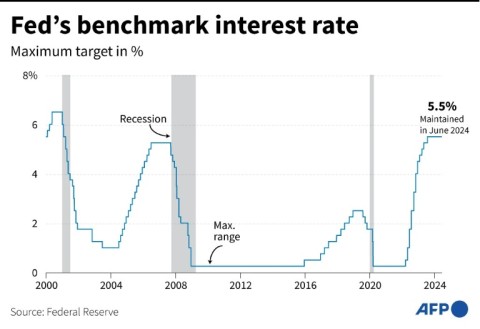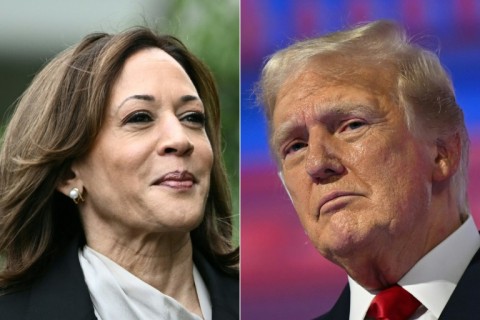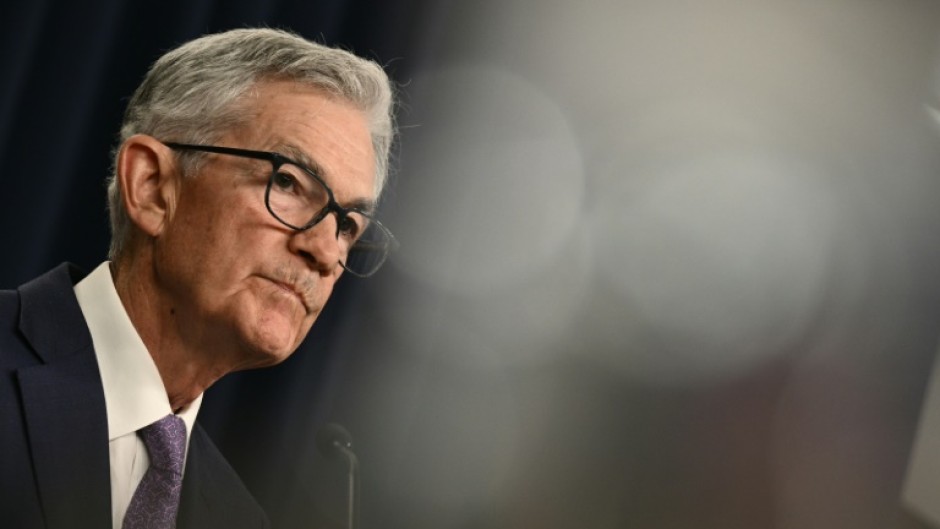WASHINGTON - The US Federal Reserve is highly unlikely to waver from its position of holding interest rates at a two-decade high on Wednesday, but could drop hints about a September start to rate cuts.
The US central bank's key lending rate has been at a two-decade high between 5.25 and 5.50 percent for the past year, with policymakers seeking to bring inflation back down toward the bank's long-term target of two percent.
After a small uptick in inflation earlier this year, the Fed's mission appears to be firmly back on track. Its favored measure of headline inflation eased to an annual rate of 2.5 percent last month, while economic growth has remained resilient, and the labor market has come into better balance.
Despite the improved economic picture, the Fed is not expected to make its first rate cut at the conclusion of a two-day policymakers' meeting on Wednesday, High Frequency Economics (HFE) chief US economist Rubeela Farooqi wrote in a recent investor note.
Recent comments from Fed officials "suggest that they will remain on hold at their meeting... but have moved closer to a first interest rate cut," Goldman Sachs US chief economist David Mericle wrote in a note to clients published Friday.
Instead, the Fed's rate-setting committee "is likely to revise its statement to hint that a cut at the following meeting in September has become more likely," he said.
- Waiting for September -

At the most recent rate decision in June, Fed officials responded to a small uptick in inflation by lowering the number of cuts they penciled in for this year from three down to just one.
Since then, the data has painted a much better picture, and futures traders now assign a probability of around 65 percent that the US central bank will make at least 0.75 percentage-points of cuts this year, according to CME Group data.
Those cuts are expected to come in the form of three quarter-point moves.
The markets now overwhelmingly expect the Fed's first move to come in September, and have assigned a chance of less than five percent that the Fed's rate-setting Federal Open Market Committee (FOMC) will move on Wednesday.
"The case for the Federal Reserve to cut interest rates is strong and we anticipate that it will use the July meeting to plant the seed that the first move in the normalization cycle is on the table for September," Oxford Economics chief US economist Ryan Sweet wrote in a recent note to clients.
- 'Modest further progress' -

Fed Chair Jerome Powell told lawmakers in Washington earlier this month that recent data "have shown some modest further progress" against inflation.
"More good data would strengthen our confidence that inflation is moving sustainably toward two percent," he added.
Powell is unlikely "to broadcast an exact date for when the FOMC may start lowering rates" when he speaks to reporters later on Wednesday, Farooqi from HFE said.
"But he will probably acknowledge that inflation is moving in the right direction, and the FOMC is moving closer to gaining sufficient confidence to make the policy stance less restrictive," she added.
Powell will have further opportunities over the summer to make the Fed's position clear -- including his keynote address to a gathering of top central bankers in Jackson Hole, Wyoming, next month.
"We believe Powell will wait until Jackson Hole end August –- by which time the Fed will have another month's data –- to deliver the explicit September cut signal," economists at Evercore ISI wrote in a recent note to clients.
If the Fed does move in September, its decision would thrust the independent US central bank into the middle of the 2024 presidential election battle between former president Donald Trump and Vice President Kamala Harris.
Trump has accused Powell -- who he nominated -- of displaying political favoritism toward the Democratic party, and suggested that he would not reappoint the central banker as Fed chair if he wins in November.
da/aha
By Daniel Avis
AFP

